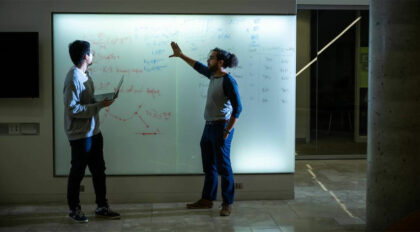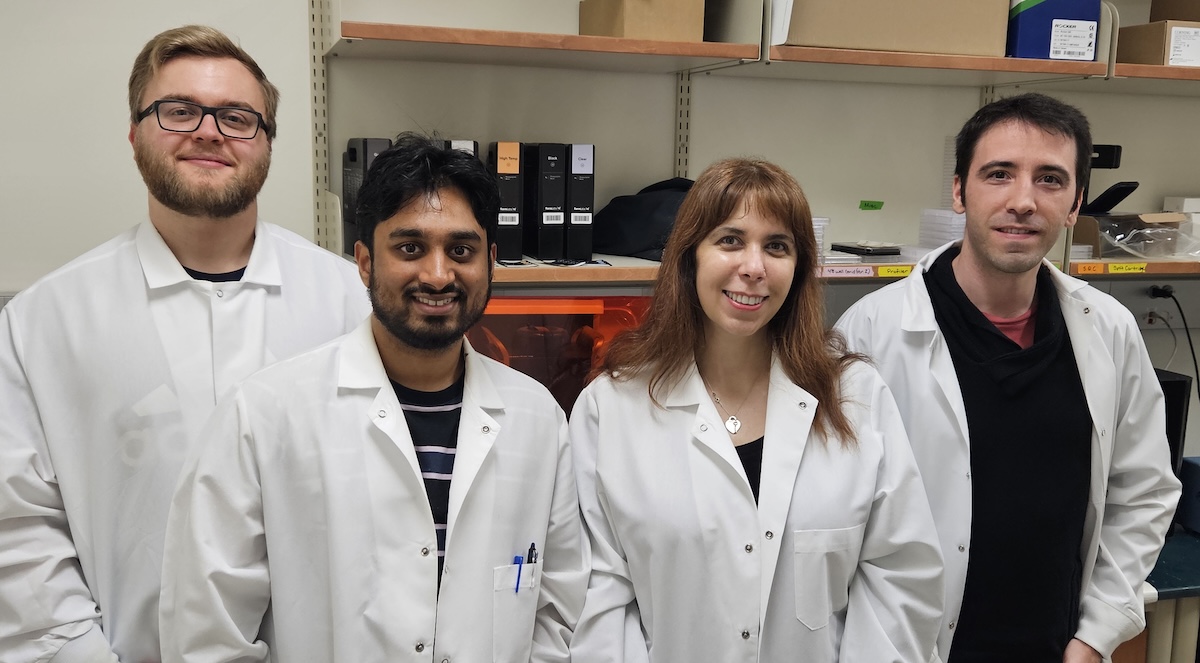Bringing collaborative science to the dream of precision medicine
Growing up in Madrid, Jose Ayuso’s parents, both bank clerks, often puzzled over how he acquired such a deep passion for all things science. But his thirst for science and mathematics was insatiable, transcending disciplinary lines.

At Spain’s Autonomous University of Madrid, he earned a biochemistry degree, and stayed to pursue a master’s in biophysics. Finally, Ayuso earned a doctorate in biomedical engineering at the University of Zaragoza.
“I like the predictive nature of math,” says Ayuso. “I wanted to work in a field where you could bring those equations to the table. That’s biophysics or biomedical engineering.”
It’s not surprising that, with that perspective, Ayuso wound up at the Morgridge Institute, a global leader in cross-cutting, collaborative research. As a promising Morgridge Postdoctoral Fellow and later as a scientist working with researchers David Beebe, Melissa Skala and Kari Wisinsksi, Ayuso spent more than five years at Morgridge. They worked to generate advanced microfluidic cell culture platforms to recreate the architecture of tumors.
“Melissa is an expert in biology and physics, Dave is an engineer, and Kari is an expert in clinical care,” Ayuso says. “That gave me a multidisciplinary foundation allowing me to tackle these projects using new tools to answer questions that help people in the clinic. You cannot easily achieve that without access to those experts.”
Although science is moving in more collaborative, less siloed, directions, Morgridge is a trailblazer. In 2022, Ayuso carried Morgridge’s collaborative ethic to his current post as assistant professor in UW–Madison’s Department of Dermatology.
I am working on a daily basis with physicians who are working with patients, and basic scientists who are all working to cross that gap between basic science and medicine.
Jose Ayuso
“The Morgridge experience helped me because today I am working on a daily basis with physicians who are working with patients, and basic scientists who are all working to cross that gap between basic science and medicine,” he says.
The Ayuso Lab uses advances in microfabrication, 3D printing, bioprinting and other tools to fabricate lab-grown skin tissue to tap the promise of precision medicine.
“Maybe we have a patient with skin cancer and need to identify the best therapy,” he says. “We don’t have the time or ability to test 100 drugs on that patient. So, we use that patient’s cells to build and reproduce a small fragment of the skin so we can test which therapies work.”
Ayuso, who has also taught molecular and environmental toxicology and a dermatology seminar, takes special pride in helping students with his shared hunger for science to succeed in the lab and the classroom.
Sometimes they return from the lab with sensational data, and often they learn to troubleshoot when their experiments fall flat, Ayuso says. No matter the outcome, Ayuso buoys them with his infectious positivity and unfailing energy.
“It’s so rewarding to see them growing from the day they walk in,” Ayuso says. “When they challenge your ideas and they are right, that’s exciting. When they reach that day, when they challenge you and know more than you do, that’s super cool.”

Rising Sparks: Early Career Stars
Rising Sparks is a monthly profile series exploring the personal inspirations and professional goals of early-career scientists at the Morgridge Institute.
